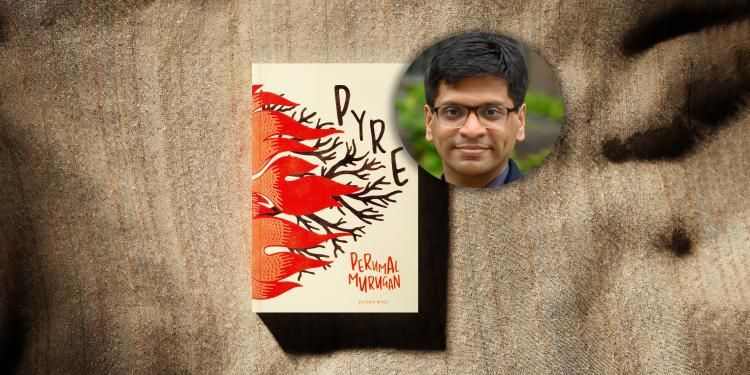
Perumal Murugan interview: 'Reports of honour killings compelled me to write'
Longlisted for the International Booker Prize 2023, Perumal Murugan talks about his novel Pyre and the events that inspired the book in an exclusive interview

With Pyre longlisted for the International Booker Prize 2023, its translator talks about the complexities of the Tamil language, and confusing sheep with goats
Read interviews with all of the longlisted authors and translators here.
How does it feel to be longlisted for the International Booker Prize 2023 – an award which recognises the art of translation in such a way that the translators and author share the prize money equally should they win – and what would winning the prize mean to you?
It feels unreal. I am just beginning to get the hang of how translation works and what it entails as a task, and I often have a sincere urge to go back and redo all my earlier work, including Pyre. So it feels quite strange and humbling to be longlisted for the International Booker Prize 2023!
How long did it take to translate Pyre, and what does your working process look like? Did you read the book multiple times first? Did you translate it in the order it’s written?
When I translated the book first for the Indian edition in 2015-2016, I remember it took a few months, because I was doing it alongside my PhD course work. As I say in the translator’s note, I felt challenged by the reported speech, the distinctive ways in which the characters spoke in the novel. So I did read the text multiple times, making multiple drafts of many of the sections. I was able to consult Perumal Murugan on the stunning regionality of his Tamil. He and I come from different regions in the Tamil country, regions with their own ways of registering the world in the Tamil language. In 2021, for the international edition, I was able to make a lot of edits, for which I am very grateful. I think I have been developing an ear for idioms outside Indian English only over the past few years.
Aniruddhan Vasudevan
Between a constant feeling of responsibility to a text and its author and my own misgivings about my skills as a translator, I am often quite tormented and I question myself constantly
What was the experience of working with the author, Perumal Murugan, like? How closely did you work together? Was it a very collaborative process? Were there any surprising moments during your collaboration, or joyful moments, or challenges?
I worked with Perumal Murugan on things I found challenging in the text, sections where I was concerned about my understanding of something, some expression or turn of phrase. These conversations are always fascinating, and I learn a great deal from him. I really cherish these moments. There have been surprising moments for sure, such as when I realized that ‘aadu’, which I confidently took to refer to goats, actually referred primarily to sheep in the Kongu region. ‘Vellaadu’ was goat. The unmarked ‘aadu’ referred to ‘semmariyaadu’ or sheep.
What was your path to becoming a translator of literary fiction? What would you say to someone who is considering such a career for themselves?
I did not set out to become one. The first ever book-length work I did was One Part Woman, another of Perumal Murugan’s novels. I picked it up at the Chennai International Book Fair in 2011 and was enthralled by it. When I translated that book, I had no idea that I was embarking on a career of sorts or that the world of translation publishing was going through an immense expansion. All I remember is that soon after the book came out, I realised I had to get better at my work and that I had a long way to go. I definitely still feel that way, and this is no false modesty. Between a constant feeling of responsibility to a text and its author and my own misgivings about my skills as a translator, I am often quite tormented and I question myself constantly, but I am unable to stop translating. It has become a compulsion. There are also times when the work goes smoothly and there is a sense that I am in the zone, that something is working out. I live for those moments.
Perumal Murugan
© Srinivasan Natarajan
